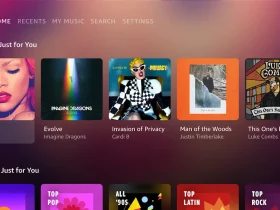You can make substantial profits by running a billboard business and getting paid for advertising businesses, companies, and products alike.
Every business, big or small, needs advertisement and many will choose billboards as a well-tested method.
Here lies a business opportunity to monetize on selling outdoor advertising space.
According to the IBS World, billboard advertising is a 6.5-billion-dollar industry.
A billboard business sells advertising space to businesses and companies on rental services, while it doesn’t only include billboard promotions.
Billboard advertising may also include promotional material on vehicles and benches.
If you would like to tap into the potential of billboard advertising, you might be interested in starting your own billboard business.
We are answering all of your questions and more, with a step-by-step guide on how to start your own billboard advertising business.
What is a Billboard Business?
A billboard business is an outdoor advertising business that generates profit by renting advertising space.
Primarily, billboard businesses make money by selling advertising space to companies and other businesses.
However, a billboard business can also generate profits by obtaining permits for setting up billboards and buying rental spots and selling these permits to other billboard companies.
A billboard business also involves advertising on benches and vehicles.
How Much Can I Make with a Billboard Business?
Profits from running a billboard business greatly vary based on the location, the type, and the number of billboards you have.
How much can you make also depends on the size of your billboards.
On average, if you are renting billboards in more isolated areas, you can make around $5,000 per location.
In case you are advertising in busy locations your advertising space can generate up to $20,000 per location while you eat and sleep.
Ideally, heavy traffic locations can generate up to $100,000 according to AZ Central.
Is Renting Billboards a Profitable Passive Income?
Yes, definitely. Based on the numbers and profits, selling advertising space can become your primary source of income, but is a great source of passive income.
Your involvement in running a billboard business will mostly revolve around talking with your clients and getting permits for setting up billboards and using other types of advertising space, such as benches.
How to Start a Billboard Business
Although making money selling advertising space does sound easy, starting a billboard business comes with some challenges.
To get you started on all essentials, to kickstart a billboard business you will need to:
- Learn how the business is run
- Research the market
- Name and legalize your business
- Obtain all necessary permits and licenses
- Create a business plan
- Find suitable locations
- Set up or buy billboards
- Promote your business
It seems like there are a lot of steps, so let’s take a deep dive into the matter!
Step 1: Learn How the Business is Run
Before you start, you need to learn the trade and know-how a billboard business is run. One of the skills you will first find necessary is negotiation.
You will be negotiating with both your clients and landowners, so communication skills are essential.
It is also a great advantage if you have graphic design skills as you will be able to design ads yourself and create an effective promotion for your clients.
However, even if you are not skilled with graphic design, you can hire a professional designer.
To get to know the business, you also need to get familiar with the types of billboards and advertising space you can offer as a billboard business. Here is a list of some of the most popular:
1. Classic Billboards
Classic billboards are targeting both pedestrians and motorized traffic. Classic billboards are also known as bulletins and can be in different sizes.
These are some of the most common advertising spaces in the billboards business.
2. Posters
Posters are usually used for local advertisers, so the chances are that small local businesses are likely to use your services through the medium of posters.
Posters normally come in half the width of classic billboards.
3. Vinyl Billboards
Vinyl billboards are similar to classic billboards but are brighter than classic bulletins. That is how the color on vinyl billboards looks bright and fresh for longer periods.
Selling advertising space on vinyl billboards can be one of the top-selling points for your business.
4. Painted Billboards
Painted billboards are a true rarity nowadays, although some advertisers may request them.
5. Mobile Billboards
Mobile billboards are very popular and include advertising on vehicles, but also physical billboard constructions that can be easily moved to other locations if necessary.
You will also need to check what permits and licenses you need to legalize your business, both on local, state, and federal levels.
We will help you find your way around legal questions in this step-by-step guide.
Step 2: Research the Market
After you have followed up with the basics of the trade, you can start researching the market.
Market research needs to include your competitors as well as the potential profitability of a billboard business in your area.
Market research is an essential step before starting any business as you can learn how the industry works.
When researching your competitors, it is important to know how they work and how they promote their business.
You will also need to look into their offer and pricing, which will help you set up your offer and price plans.
You will also research the demand for your services in the area where you plan to operate.
Make sure that there is a healthy demand for outdoor advertising space in comparison to the number of billboard businesses in your area.
A great part of your market research can be conducted online and via Google searches, analytics, and other tools offered by Google.
Step 3: Name And Legalize Your Business
The next thing is choosing a name for your business and registering your company.
When choosing a name for your business, make sure to pick a name that makes sense for your target industry.
It is also important for the name to be catchy and easily remembered. That way you’ll be able to create a memorable brand.
Once you pick the perfect name, you need to legalize your business and make it official. To register your business, you first need to pick the structure.
You can register your business as one of the following structures:
- Sole Proprietorship
- Partnership
- Limited Liability Company
- Cooperation
It is always to choose a structure that allows full autonomy over your business instead of going for a partnership.
However, partnerships can make any start of a business easier, especially if you are partnering with an already established business.
Register your business with state and federal authorities once you decide what structure you want to go for. According to GovDocFiling, you could use a professional business formation services like LegalZoom to register your business and keep it legally compliant. It is a popular for taking care of all the formation paperwork and formalities.
Aside from registering your chosen business structure, you will also need to register for federal taxes to keep your business legal.
Next, you should start working on permits and licenses.
Step 4: Obtain Permits and Licenses
Off-premise outdoor advertising usually requires local and state permit applications.
The best practice is to go straight to your municipal office and ask about requirements and legal work revolving around the details of your business.
For example, permits and regulations may be different for obtaining already existing billboards than setting up new billboards in different locations.
Before you visit the local municipality office, you should create a business plan to represent your business in detail if required for permit application.
Permits and licenses may vary from state to state, while there are also unique local regulations across the US.
Step 5: Create a Business Plan
Creating a business plan is essential for your business. Business plans act as a navigation tool for any type and form of business and can help you outline your marketing plan, long-term goals, finances, and cover ROI, assets, and list your competitors.
To properly document your business plan, you will need to follow this structure and include five essential chapters:
- Executive Summary
- Products and services
- Marketing Plan
- Operational Plan
- Financial Plan and Budget
You can get assistance from a professional business advisor if you are stuck on some parts of your business plan or not sure how to start.
If you find it difficult to create a financial plan by yourself, you can hire a financial advisor who specializes in small business.
Step 6: Find Suitable Locations
As we already mentioned earlier in our guide, one of the essential determining factors of billboard business profitability is location.
The logic of it is that locations with more traffic, both pedestrian and motorized, will generate more profits.
You also want to consider permits required for different locations.
You can apply to any location you want. However, local and state officials will carefully look into your application.
Their decision will be mostly oriented toward the public good.
Even if you already have all the locations you need for your business once you start buying advertising space, you can apply for more locations and then resell those to other billboard companies.
Step 7: Set Up or Buy Billboards
Related to finding locations, some locations you find will already be fully equipped with billboards. Still, you may want to buy some locations and set up the billboards yourself.
If you are wondering which option is the best, it all depends on your business plan and the budget you have.
In general, buying billboards is more cost-effective than setting up new ones. Moreover, setting up new billboards will require more time and more paid labor.
On the opposite side, setting up your billboards can give you the freedom to customize advertising space.
However, getting permits for setting up billboards is more difficult in comparison to buying existing ad space.
Step 8: Set Up Prices
Setting up prices can be fun if you’ve done your research.
Before you start working on your pricing plan, you need to list all your services and describe your offer in detail. Use your business plan as a reference and form your prices with your competitors’ pricing in mind.
As a beginner in the business and a new name, you don’t want to have prices that are higher than the prices of well-established competitors.
Also, don’t lower your standards even if you are just beginning as you don’t want to be underpaid for your work.
If your prices are too low, people may also think that you are compensating for the lack of quality of service.
Step 9: Promote Your Business
Finally, you need to get out there and promote your business.
There are many ways to strategize your marketing plans and cut to achieving your business calls. You can advertise your business online and get to cold calling on a local level.
When it comes to online marketing, you can create your website with a professional logo and start running social media pages for your business.
If you want to use cold calling, you can call or email local businesses that could potentially become your clients.
This is where your communication skills come as essential.
If you don’t have time to run the marketing campaign, you can hire a small team of marketers or have a freelancer run your social media pages.
Online visibility can help you turn your followers into clients and your website visits into sales, which is achieved through clever marketing.
Billboard Business Pros and Cons
While you are making your plans for starting a billboard business, let’s see what some of the biggest pros and cons are of running an outdoors advertising company.
| Pros | Cons |
| Profits are one of the biggest pros of owning a billboard business | Starting a billboard business can be very pricey |
| A billboard business can be a passive source of income with hefty returns | Good locations with high traffic can be difficult to find and buy |
| Billboards and advertising space are valuable assets and you can sell them to other billboard companies as well | A lot of competitors |
| A great growth potential if marketed well | Hefty expenses for maintaining billboards |
Wrapping Up
Not to forget that although profitable, starting your own billboard business takes a lot of time in planning and a lot of money.
If you are struggling with your start budget, partnering with another company may be the most viable choice for you.
Still, if you are certain in demand and profitability, you can always apply for a small business loan to kickstart your business.
What is certain is that the competition is strong but so is the potential of this 6.5-billion-dollar industry.













